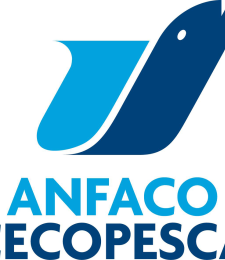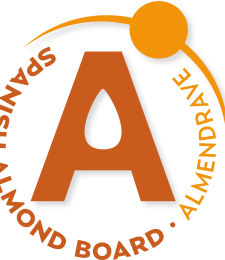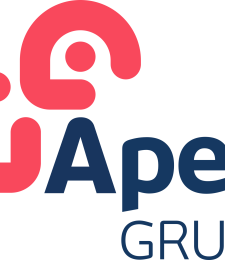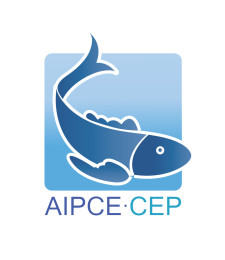Pledges
ANFACO-CECOPESCA (2021)
Pledges

Publishing organisations:
ANFACO-CECOPESCA
Relevant countries:
Spain
Organisation types:
Industry Associations and Chambers of Commerce
Next progression check date:
ANFACO-CECOPESCA is a private and non-profit business association whose mission more than a century after its founding, continues to be to represent and defend the sectoral interest of seafood cluster in Spain, as well as to provide high-added value services through its Technological Centre to the whole of it.
ANFACO-CECOPESCA
Topics
Spain
Industry Associations and Chambers of Commerce
-
CoC aspirational objectives
-
-
1. Healthy, balanced and sustainable diets for all European consumers
-
2. Prevention and reduction of food loss and waste
-
3. A climate - neutral food chain in Europe by 2050
-
4. An optimised circular and resource-efficient food chain in Europe
-
5. Sustained, inclusive and sustainable economic growth, employment and decent work for all
-
6. Sustainable value creation in the European food supply chain through partnership
-
7. Sustainable sourcing in food supply chains
-
Share
The fish processing sector represented by ANFACO-CECOPESCA is characterized by its commitment to the principles of the business responsibility in the social, economic, and environmental aspects. It stands out for basing the development of its activities on the most advanced standards in fields such as work conditions, food quality and safety, respect for the environment and assurance of sustainability and achievement of the standards that ensure a responsible fishing and commerce in regard to the supply of raw materials.
Commitments by aspirational objectives:
We would be honoured to be one of the signatories of this Code and we pledge to subscribe to the obligations listed in the Code (Point 1.4):
Endorse the aspirational objectives set out in this Code (where applicable);
Promote and disseminate this Code within their constituencies;
Encourage their members to align their sustainability actions and/or business practices to the aspirational objectives and targets of the Code and invite them, voluntarily, to adhere to this Code, as appropriate;
Explore the possibility of developing sector-specific tools and resources in support of this Code;
Provide, on an annual basis, a report of their activities in support of this Code, which will be published on an open dedicated website;
Continue to engage in dialogue with other food chain/system actors and EU and international policy-makers to forge new relationships, exchange good practices, discuss challenges encountered, learn from each other through studies and projects, create better mutual understanding, and identify opportunities for collaboration and potential partnerships.
Aspirational objective 1: Healthy, balanced, and sustainable diets for all European consumers, thereby contributing to:
1) Reversing malnutrition and diet-related noncommunicable diseases (NCDs) in the EU;
2) Reducing the environmental footprint of food consumption by 2030.
With the following aspirational targets:
a) Improved food consumption patterns in the EU;
b) A food environment that makes it easier to choose healthy and sustainable diets.
Aspirational objective 2: Prevention and reduction of food loss and waste (at the consumer level, within internal operations, and across value chains)
With the following aspirational target:
A 50% reduction of per capita food waste at the retail and consumer level by 2030 and reduced food losses along the food production and supply chains in the EU.
Aspirational objective 3: A climate-neutral food chain in Europe by 2050
With the following aspirational target:
Reducing net emissions from own operations, contributing to a 55% GHG emission reduction target in the EU food chain by 2030 (following a science-based approach).
Aspirational objective 4: An optimised circular and resource-efficient food chain in Europe
With the following aspirational targets:
a) Improved resource efficiency within own operations, contributing to sustainable, efficient use and management of energy and natural resources in operations by 2030;
b) Improved food and drink packaging sustainability, striving for all packaging towards circularity by 2030.
Aspirational objective 5: Sustained, inclusive, and sustainable economic growth, employment, and decent work for all
With the following aspirational targets:
a) Improved resilience and competitiveness of companies operating at any point along the food value chain by 2030;
b) Quality jobs, skilled workforce, and safe and inclusive workplaces for all.
Aspirational objective 6: Sustainable value creation in the European food supply chain through partnership
With the following aspirational targets:
a) Improved resilience and competitiveness of companies operating at any point along the food value chain by 2030;
b) Continued progress towards sustainable production, contributing to sustainable management, efficient use of natural resources by 2030, and improved animal welfare.
Aspirational objective 7: Sustainable sourcing in food supply chains
With the following aspirational targets:
a) Transformed commodity supply chains that do not contribute to deforestation, forest degradation, and destruction of natural habitat and which preserve and protect high-value ecosystems and biodiversity;
b) Improved social performance in (global) food supply chains.
Full detail of the pledge in the provided attachment.
Documents
Comments (0)
See also
-
2
Almendrave (2021)
Publishing organisations: Almendrave
Relevant countries: Spain
Organisation types: Industry Associations and Chambers of Commerce
Next progression check date:
- Categories
- 2. Prevention and reduction of food loss and waste 3. A climate - neutral food chain in Europe by 2050 4. An optimised circular and resource-efficient food chain in Europe +3 more
-
5
Grupo Apex (2021)
Publishing organisations: Grupo Apex
Relevant countries: Spain
Organisation types: Company with 250 or more employees
Next progression check date:
- Categories
- 2. Prevention and reduction of food loss and waste 3. A climate - neutral food chain in Europe by 2050 4. An optimised circular and resource-efficient food chain in Europe +3 more
-
4
AIPCE CEP (2021)
Publishing organisations: AIPCE CEP
Relevant countries: Belgium
Organisation types: Industry Associations and Chambers of Commerce
Next progression check date:
- Categories
- 2. Prevention and reduction of food loss and waste 3. A climate - neutral food chain in Europe by 2050 4. An optimised circular and resource-efficient food chain in Europe +3 more




